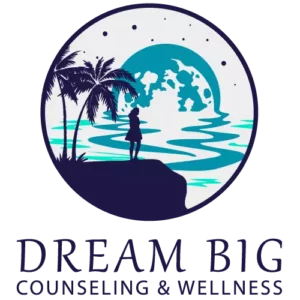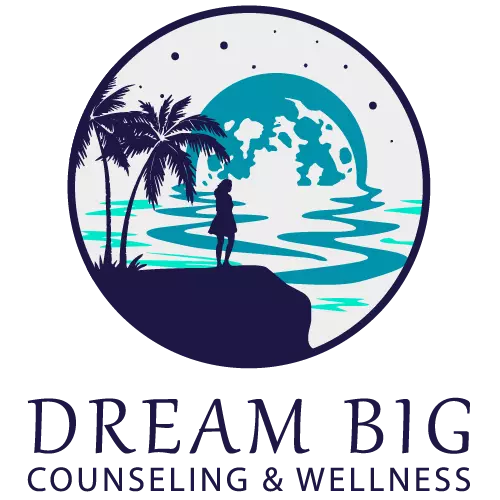Therapists in Georgetown TX
Find the Best Counseling Services in Georgetown Tx
Searching for therapists in Georgetown, TX? This guide highlights top counseling services and various therapy options available. You’ll also get tips on selecting the right therapist to meet your specific needs. Start your journey to better mental health today.
- Georgetown offers a variety of specialized therapies, including EMDR, CBT, and Solution-Focused Therapy, catering to diverse mental health needs.
- Therapists in Georgetown emphasize tailored approaches for children and adolescents, using methods like play therapy to help young clients express emotions and develop coping skills.
- Dream Big Counseling and Wellness supports the LDS community with culturally relevant services and outreach efforts, ensuring a compassionate environment for mental health care.
Understanding Different Types of Therapy
Therapy comes in many forms, each designed to address specific issues and help individuals achieve better mental health. Knowing the various forms of therapy can help you choose the best approach for your needs. Various modalities, such as EMDR, CBT, and Solution-Focused Therapy, offer unique benefits and cater to different challenges.
Choosing the appropriate therapist and therapy modality is key to effective treatment. Therapists have different specializations, which align their skills with client needs. Here are some of the most common and effective therapy types used by professionals in Georgetown.
At Dream Big Counseling and Wellness, a variety of therapy options are available to cater to teens, adults, and families facing challenges like trauma, anxiety, depression, and emotional regulation problems.

EMDR Therapy
EMDR (Eye Movement Desensitization and Reprocessing) therapy is a powerful tool designed to help individuals process and recover from trauma and anxiety. This therapeutic approach facilitates the brain’s natural healing processes by using bilateral stimulation, such as eye movements, to help clients reprocess traumatic memories and reduce their distress. Dream Big Counseling and Wellness offers specialized support, making this an effective option for those dealing with deeply rooted trauma.
EMDR therapy has been shown to significantly improve symptoms of PTSD, anxiety, and other trauma-related issues. This method aids clients in healing from past experiences, allowing them to move forward with greater emotional freedom and resilience.
This therapy is just one of the many ways Dream Big Counseling and Wellness supports clients on their journey to recovery.
Cognitive Behavioral Therapy (CBT)
Cognitive Behavioral Therapy (CBT) is another widely used therapeutic approach that focuses on altering negative thought patterns to improve mental health. CBT helps clients manage issues such as anxiety and depression by teaching them to identify and challenge harmful thoughts and behaviors. This structured approach empowers individuals to develop healthier coping strategies and improve their overall quality of life.
Therapists specializing in CBT often incorporate trauma-focused cognitive behavioral therapy (TF-CBT) to address the impacts of trauma. CBT changes the way clients think about and react to their experiences, leading to significant improvements in emotional well-being. This evidence-based technique is a cornerstone of effective counseling services in Georgetown.
Solution-Focused Therapy
Solution-Focused Therapy is a pragmatic approach that emphasizes finding immediate solutions to current problems rather than delving into past issues. This therapy prioritizes client strengths and resources, encouraging a positive mindset and fostering quick changes.
Therapists use targeted questions and strategies to help clients envision their desired future and establish actionable steps towards achieving it. This method is particularly effective for those seeking rapid progress and dealing with specific challenges. The focus on solutions rather than problems makes this a highly motivating and results-oriented therapy.
Specialized Therapists in Georgetown

Georgetown is home to a diverse range of specialized therapists who cater to various mental health needs. Whether you are looking for individual, family, or couples counseling, it is essential to find a therapist whose approach and specialties align with your personal needs. This ensures that you receive the most effective and personalized support.
Verifying a therapist’s credentials and specialized training is important in this process. Verifying licenses and certifications helps ensure that you are working with qualified professionals. Georgetown therapists offer various modalities, including CBT, EMDR, and DBT, providing a broad spectrum of treatment options.
Choosing the right therapist helps you address specific issues more effectively and achieve better outcomes. This section explores the importance of specialized therapists in Georgetown and how they contribute to the overall mental health landscape.
Trauma Specialists
Trauma specialists play a vital role in helping clients heal from deeply distressing experiences. Therapies like EMDR are essential for processing traumatic memories and reducing their impact on daily life. Georgetown offers a range of specialized trauma therapists trained in these techniques, ensuring that clients receive the best possible care.
For those dealing with past traumatic events, finding a trauma therapist is essential. Specialized therapists are equipped with the skills and knowledge to support clients through their healing journey, helping them rebuild and move forward with confidence.
Child and Adolescent Counseling Services
Children and adolescents face unique challenges that require specialized counseling services. Therapists in Georgetown work with young individuals from ages 3 through their teen years, addressing a wide range of emotional and behavioral issues. Early intervention is key to helping children develop healthy coping mechanisms and emotional regulation skills.
Counseling services for children often include evaluations for conditions like ADHD and autism, which can significantly impact behavior and development. Creating a safe and compassionate environment is essential for effective therapy, and Dream Big Counseling and Wellness excels in providing this for their young clients.
This section dives into the various Georgetown counseling services available for children and adolescents in Georgetown, emphasizing the importance of tailored approaches to offer counseling services that meet their specific needs.

Play Therapy for Children
Play therapy is a highly effective method for helping children express their emotions and resolve conflicts through play. This therapeutic approach allows children to communicate their feelings in a natural, non-verbal way, which can be especially beneficial for those who struggle with traditional talk therapy.
Parents often report significant improvements in their children’s emotional expression and behavior after starting play therapy. Therapists create a safe and engaging environment, helping children articulate their feelings and develop healthier ways to handle their emotions.
Teen Counseling
Teen counseling addresses the unique challenges faced by adolescents, such as peer pressure, academic stress, and identity exploration. These years can be turbulent, with teens navigating complex social dynamics and striving to understand themselves.
Counseling provides teens with a supportive space to discuss their concerns and develop strategies to manage stress and build resilience. Addressing mental health issues early helps teens achieve better emotional health and prepare for future challenges.
Parental Support and Guidance
Parental support is crucial for a child’s mental health and development. Counseling services often involve parents in the therapeutic process to ensure they provide the nurturing environment needed for their child’s well-being. Therapists guide parents on how to support their children through emotional regulation and behavioral issues.
This collaborative approach helps families understand and address their child’s needs, promoting healthier family dynamics.
Marriage and Family Counseling

Marriage and family counseling is essential for maintaining healthy relationships and family dynamics. Therapists in Georgetown are trained to assist with a variety of issues, including stress, anger, grief, loss, and marital difficulties. Counselors use targeted therapy techniques to help clients improve relationships and enhance self-confidence.
These services include family counseling that aligns with cultural and religious values, particularly for LDS clients. Many families report significant progress and enhanced communication after engaging in therapy.
This section explores the different approaches used in marriage and family counseling, highlighting their benefits in fostering stronger, more connected relationships.
Gottman Method Couples Counseling
The Gottman Method Couples Counseling is based on over 40 years of research by Drs. John and Julie Gottman. This approach emphasizes the importance of positive interactions vastly outnumbering negative ones to sustain a healthy relationship.
Therapists guide couples through communication strategies that help manage conflicts and fulfill emotional needs, especially when facing relationship issues. Typically involving around 10 sessions, this method improves relationship satisfaction, intimacy, and communication skills, significantly lowering divorce rates.
Family Therapy Techniques
Family therapy techniques aim to improve communication and resolve conflicts within the family unit. Methods like the Gottman Method enhance understanding and foster intimacy among family members. These techniques are crucial for families looking to function more cohesively and handle relational dynamics effectively.
Family therapy strengthens bonds by promoting open communication and conflict resolution in family life.
Reunification Therapy
Reunification therapy is designed to help families rebuild relationships after periods of separation or estrangement. This therapeutic approach focuses on restoring trust and communication, allowing families to reconnect and heal from past conflicts.
Mental Health Issues Addressed
Therapists in Georgetown address a wide range of mental health issues, including anxiety, depression, and addiction. These issues can significantly impact an individual’s quality of life and overall well-being.
Effective therapy is crucial for managing these mental health challenges. Therapists use evidence-based techniques to help clients overcome struggles and achieve better emotional health. This section highlights the importance of addressing mental health issues and the specific therapies used to treat them.

Anxiety and Depression
Anxiety and depression are among the most common mental health issues, affecting millions of people. Therapists in Georgetown use Cognitive Behavioral Therapy (CBT) to help clients manage these conditions by altering negative thought patterns.
Many clients have successfully overcome anxiety and depression through therapeutic interventions, leading to improved emotional well-being. This evidence-based approach is a cornerstone of effective mental health treatment.
Personality Disorders
Personality disorders involve patterns of thinking, feeling, and behaving that deviate from cultural expectations and cause distress or impairment. Therapists employ evidence-based techniques to treat these disorders, focusing on changing harmful thought patterns and behaviors.
Effective strategies for managing personality disorders include cognitive restructuring, enhancing interpersonal skills, and developing coping mechanisms. These approaches help individuals improve their relationships and overall functioning.
Emotional Regulation Problems
Emotional regulation is a critical aspect of therapy, allowing clients to manage their feelings effectively. In-person sessions often evoke more intense emotional responses, which are vital for accurate diagnosis and effective treatment. Therapists use various strategies, such as mindfulness and cognitive restructuring, to help clients regulate their emotions.
These techniques enable individuals to handle their feelings in healthier ways, improving their overall emotional well-being.
Finding the Right Therapist in Georgetown

Finding the right therapist is essential for effective treatment and achieving desired outcomes. Therapists in Georgetown are matched with clients based on specific needs, preferences, and therapeutic approaches. A personalized approach ensures that clients receive the most suitable support for their mental health issues.
In the first session, clients discuss their goals, concerns, and what they hope to achieve from therapy. The initial consultation helps establish a strong therapeutic relationship and sets the foundation for successful treatment.
Guidance on finding the right therapist in Georgetown, with an emphasis on credentials and initial consultations, is provided here.
Researching Therapist Credentials
It’s crucial to verify a therapist’s licenses and credentials to ensure they are qualified to provide mental health support. Checking for additional certifications or specialties can provide insight into a therapist’s areas of expertise and treatment approaches.
Reading reviews or testimonials from previous clients offers valuable perspectives on a therapist’s effectiveness and interpersonal skills. Understanding a therapist’s theoretical orientation, such as cognitive behavioral therapy or psychodynamic, can help ensure their approach aligns with your needs.
Initial Consultation
In the initial consultation, clients typically discuss their reasons for seeking therapy and any relevant background information. This session is essential for setting initial goals and collaboratively creating a treatment plan with the therapist.
Clients should assess whether they feel comfortable with their therapist’s style and approach during the first meeting. The matching process involves considering the therapist’s expertise and the client’s preferences to find the right fit for therapy.
Benefits of In-Person and Online Therapy
Choosing between in-person and online therapy can significantly impact the therapeutic experience and outcomes. Both formats have unique benefits, and the choice often depends on personal preferences and circumstances.
In-person therapy offers immediate support through face-to-face interactions, fostering a stronger personal connection. Online therapy, on the other hand, provides flexibility and accessibility, allowing clients to schedule sessions at their convenience.
Exploring the advantages of both in-person and online therapy can help readers decide which format suits them best.
Flexibility and Accessibility of Online Therapy
Online therapy provides significant convenience, allowing clients to attend sessions from their homes without the need for travel. This flexibility makes it easier for individuals to fit therapy into their busy schedules and access mental health support remotely.
Online therapy has emerged as a flexible solution for those seeking mental health support, offering the same therapeutic benefits as in-person sessions in a more accessible format.
Personal Connection in In-Person Therapy
Face-to-face interaction in therapy fosters a deeper connection between the therapist and the client, enhancing the therapeutic experience. Traditional in-person therapy allows clients to engage more fully, as non-verbal cues and body language play a significant role in communication.
Immediate support is a key advantage of in-person counseling, as clients can receive on-the-spot guidance and reassurance from their therapist. This format offers unique benefits, including the ability to build stronger connections and receive timely support.

Supporting the LDS Community
Dream Big Counseling and Wellness is committed to supporting the LDS community in Texas. By engaging in community collaboration, the organization continuously learns and shares resources to meet the unique mental health needs of LDS individuals and families.
Dream Big Counseling and Wellness engages with the LDS community to understand and address their specific challenges through targeted outreach efforts. This commitment to tailored services ensures that LDS clients receive culturally and spiritually relevant support.
The significance of Dream Big Counseling and Wellness’s efforts in supporting the LDS community and surrounding communities and fostering a supportive environment is highlighted here.
Tailored Services for LDS Clients
Dream Big Counseling and Wellness recognizes the distinct cultural and spiritual needs of the LDS community, providing services that facilitate mental health and well-being within this context. The services offered are specifically designed to tackle the challenges faced by LDS individuals and families, incorporating spiritual beliefs and community values into therapy.
Dream Big Counseling and Wellness actively engages with the LDS community through workshops, events, and partnerships to promote mental health awareness and offer tailored services. This commitment aims to foster a supportive environment that empowers LDS clients on their mental health journeys.
Community Outreach and Engagement
Dream Big Counseling and Wellness actively engages with the LDS community by organizing events, providing resources, and offering workshops that cater to their specific needs. These outreach efforts are crucial for fostering a supportive environment where members of the LDS community feel safe and understood while seeking mental health services.
Tailored services for LDS clients include counseling that addresses unique cultural and spiritual dynamics, ensuring they receive understanding and relevant support. These initiatives create a strong foundation for mental health and well-being within the LDS community.
Success Stories
Success stories from clients highlight the transformative impact of therapy on their lives. Many have learned to handle problems better and understand their child’s behavior through therapy, leading to significant emotional breakthroughs and improved relationships.
Consider seeking therapy to experience these benefits for yourself and your loved ones. Addressing personal and family challenges through therapy can lead to personal growth and a stronger family dynamic, illustrating the profound impact of professional mental health support.
Improved Family Dynamics
Marriage and family counseling services are designed to enhance family relationships and improve communication within the family unit. Marriage counseling and family therapy techniques focus on improving relational dynamics by fostering open communication and resolving conflicts effectively.
Client testimonials describe personal experiences where counseling has led to significant improvements in communication and relationships within families. Success stories illustrate not only the resolution of conflicts but also the strengthening of family bonds post-therapy.
Overcoming Mental Health Challenges
Clients often share their journeys of managing anxiety and depression, highlighting feelings of empowerment and hope after engaging in therapy. Overcoming mental health challenges is a significant achievement, and therapy plays a crucial role in this process.
Addressing mental health issues with mental health professionals helps clients achieve life goals and navigate life transitions and life adjustments more effectively. Seeking therapy to overcome mental health challenges and improve overall well-being is emphasized here.
Scheduling an Appointment
Scheduling an appointment with Dream Big Counseling and Wellness is the first step towards better mental health. The process begins with taking the initiative to seek help and reaching out to the counseling services available.
Guidance on scheduling an appointment and encouragement to take the first step towards therapy and healing is provided here.
Contact Options
Clients can connect with Dream Big Counseling and Wellness through various methods for inquiries and appointment scheduling. Potential clients can reach therapists through phone calls or online contact forms, making it easy to start the process.
Matching with the Right Therapist
Matching clients with the right therapist is crucial for effective treatment and achieving desired outcomes. The process involves considering the client’s needs and preferences to ensure the best fit for therapy.
Initial Session Expectations
During the first session with a counselor, clients will engage in setting goals and starting the healing process. Many therapists provide sliding scale fees based on clients’ income, making therapy more accessible.
Georgetown, TX offers a wide range of top-notch counseling services tailored to meet various mental health needs. From individual therapy to specialized trauma treatments, and from child counseling to family therapy, the options are vast and cater to all age groups and issues. Finding the right therapist is crucial for effective treatment, and knowing what to look for can make this process smoother and more successful.
Therapy is a powerful tool for personal growth, emotional healing, and improving relationships. Whether you opt for in-person sessions or the flexibility of online therapy, the key is to take the first step towards seeking help and making mental health a priority. Dream Big Counseling and Wellness, along with other dedicated mental health professionals in Georgetown, are committed to supporting clients on their journey to healing and achieving their best self. By offering a range of services, including marriage counseling, play therapy, and support for mental health issues like anxiety and depression, these professionals ensure that every client feels safe and supported. Embrace the opportunity to work with experienced therapists who specialize in various fields, and take charge of your mental health today.

